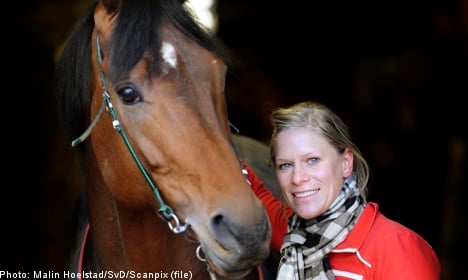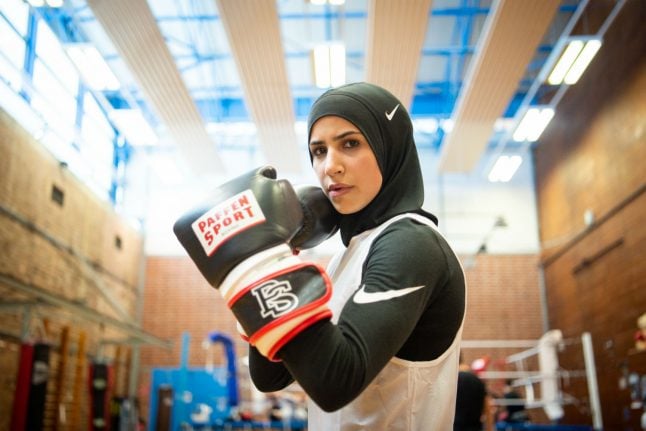Karlsson, originating from Bollebygd near Gothenburg, is an unlikely starter in the Million, considered the most prestigious turf race by many in US horse racing circles.
If the 27-year-old wins, she will not only claim the $600,000 winning prize and make history as the first female rider to do so, but also crown a remarkable sporting journey which began in the boxing ring at home in Sweden.
Fed up of her job in a petrol station, and despite being ranked second in the country in the light flyweight division, Karlsson decided in 2005 to shelve her gloves and move to Canada.
After a couple of years working her way through odd jobs at assorted ranches, she has become one of the top jockeys in the US.
“I have never tried to be famous,” wrote Karlsson on her blog. “My intent was to ride horses because I love to do it. The rest came by itself, good or bad.”
The Arlington Million, part of the the Breeders’ Cup Challenge Series, was the first thoroughbred race to offer a purse of $1 million when it began in August 1981, of which the winner receives 60 percent, or $600,000.
Competitors race over 1.25 miles, or just over 2 km, in the Million. Karlsson becomes the second woman to race at the event after Triple Crown racewinner Julie Krone finished fourth on Chenin Blanc in 1991.
If Karlsson wins, the purse will be also be the largest ever won by a Swedish jockey in a single horse race.
At around the same time she launched her boxing career, at the age of 19, Karlsson had a dragon tattooed on her back, long before Stieg Larsson’s Millennium Trilogy was published. Karlsson showed off the tattoo at a gala in Miami in October, citing it as the reason behind her success, according to the Aftonbladet daily.
“I am extremely well-trained. Sweden’s jockeys are lazy and fat compared to me,” Karlsson told the newspaper.
Karlsson’s respect for her body was honed in the boxing ring, in which she recorded 14 wins in 20 fights after suffering a technical knockout in her flyweight debut, breaking her breaking her nose several times and enduring multiple rib injuries along the way.
Karlsson has recorded 430 victories after 2,942 starts since becoming a jockey in 2007 and is currently one of the most successful female jockeys in the US. In recognition of her performance on the racetrack in 2008, she was runner-up for the Eclipse Award, the Oscar of horse racing, as the year’s top apprenticeship in the US.
This summer, she qualified with six-year-old steed Rahystrada for the Arlington Million by winning the Arlington Handicap last month.
“I want to be a role model for young girls and boys who want to do something in their lives beyond just a normal existence,” Karlsson wrote on her blog. “I’m not interested in what people say about what I look like.”





 Please whitelist us to continue reading.
Please whitelist us to continue reading.
Member comments